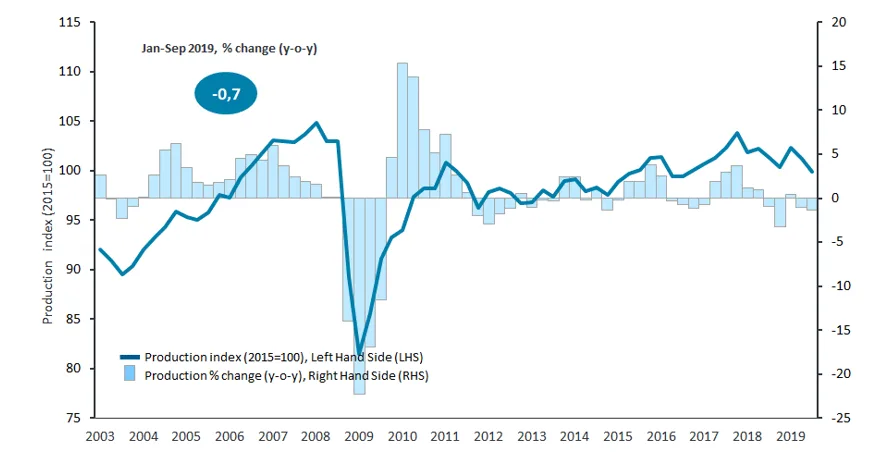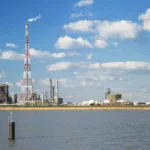
Cefic, the European Chemical Industry Council, expects chemical productionin the European Union to have declined by 1% in 2019 compared to 2018. For2020, chemical production is expected to stay on the same level as 2019.
The chemicals business climate has been affected this year by slower globaleconomic growth, political uncertainty around Brexit and ongoing tradeconflicts. Demand for chemicals wasalso lower this year than in 2018 as several key chemical buyer industries(automotive, electrical appliances) significantly reduced their output in 2019.
On the positive side, the construction industry, another key buyer ofchemicals, has posted stable growth of 2.5%. The construction sector benefitsfrom low interest rates and high demand in infrastructure investments, so itsgrowth is expected to continue in 2020. Since the chemical industry providesmany solutions and technologies for infrastructure and energy efficientbuilding, demand for chemicals in this sector is set to grow.
René van Sloten, Cefic Executive Director Industrial Policy: “Despite slightly weaker growth forecasts, Europe remains the second largest chemicals producer in the world. Our competitive advantage and future growth could come from specialised, higher-value-added products and solutions for a climate neutral and circular economy if we have the right EU policy framework and sufficient support for innovative chemistry in place”.
The 2020 outlook is expected to remain in line with 2019 figures. While rising real incomes should keep demand in manufactured goods stable, the continuous political uncertainty and hostile trade environment are unlikely to promote significant growth.











